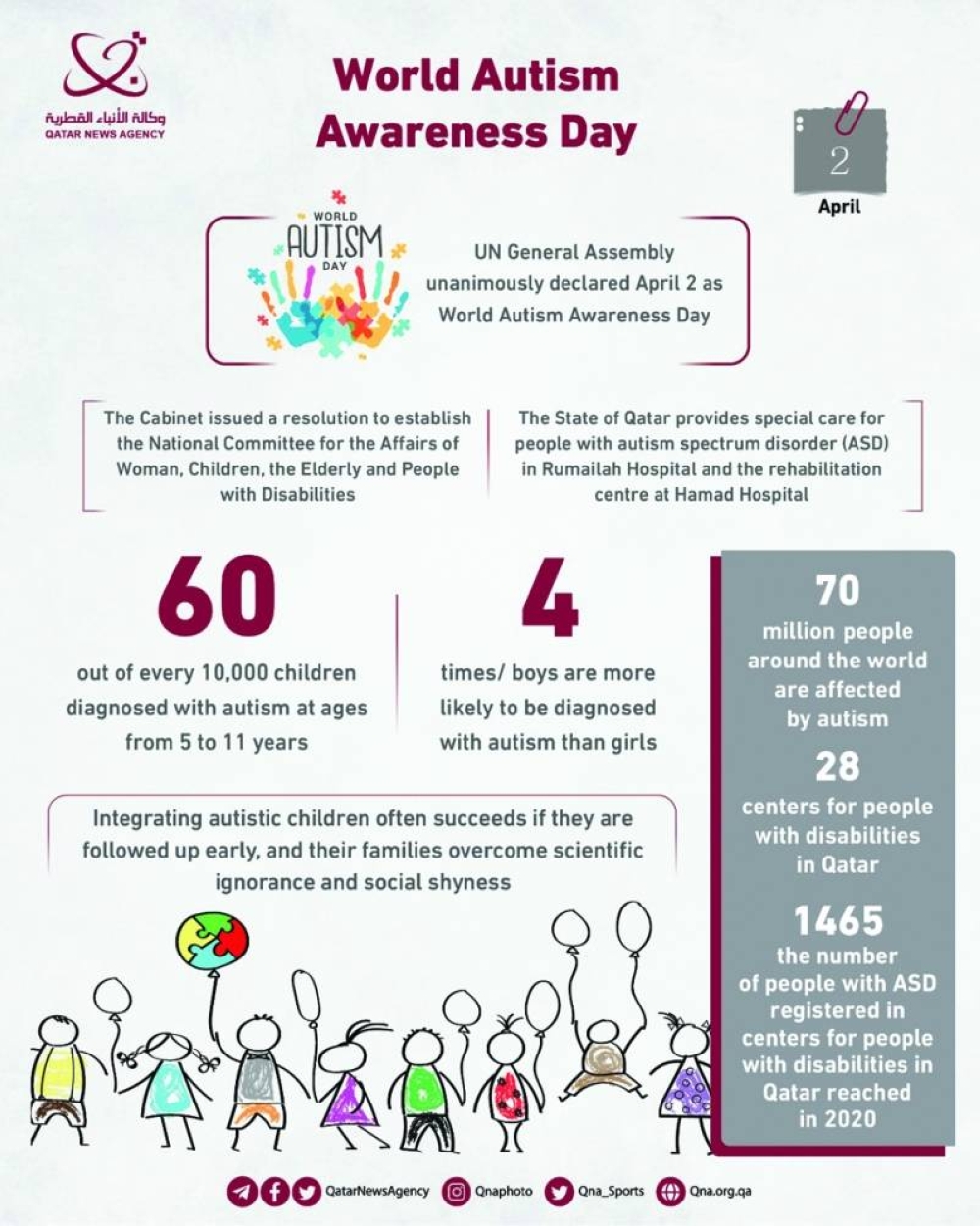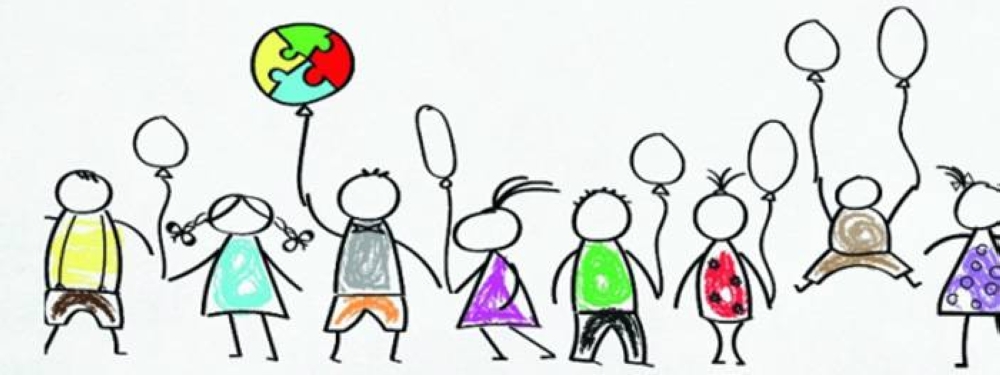Qatar played an important role in raising awareness of autism spectrum disorder at the international level. In 2007, Her Highness Sheikha Moza bint Nasser supported the campaign that called for designating a day for marking World Autism Awareness Day during the 62nd session of the UN General Assembly, which was approved unanimously by all UN member states.

In addition to designating April 2 as World Autism Awareness Day, the resolution encouraged Member States to take the necessary measures to raise awareness about autism in their communities. As part of the awareness campaign to mark World Autism Awareness Day, the ministry organises a virtual training programme to rehabilitate families on proper ways to deal with children and adults and ways to develop life skills and effective communication, especially families of individuals who have learning difficulties, autism, behavioral problems, speech delay or school problems.
Also, the ministry organises, in co-operation with the Al Maha Paediatric Specialised Care Centre, a training programme to raise the efficiency of health practitioners specialised in dealing with individuals with an autism spectrum disorder. HMC is organising awareness activities and recreational activities for autistic children and their families at Al Maha Paediatric Specialised Care Centre and Al Wakra Hospital to provide them with the necessary support and bring joy and happiness to their souls.
These events provide an opportunity for families to exchange experiences, which will have a great impact on building communication networks between parents and specialists. Also, HMC participates in global solidarity with people with autism spectrum disorder by lighting its multi-story parking building in blue. The programme for families, organised by the MoPH, aims to train all families of people with developmental disorders.
The programme is designed to provide participants with the basic knowledge and skills necessary to apply learning principles and strategies and analyse and modify children's behaviour.
The objectives of the training programme include identifying developmental disorders and practices with scientific evidence, the most important principles, laws, and strategies for analysing and modifying children's behaviour, understanding them and their uses, applying methods for analysing children's behaviour according to the basic analysis unit, identifying mechanisms for measuring behavior by correct measurement methods to make sound educational decisions, and evaluating the child's behaviour in direct and indirect ways, as a prelude to building procedures aimed at modifying the child's behaviour.
Also, the programme's objectives contain analysing tasks and skills for their basic parts to facilitate the process of training and learning for children, in addition to identifying ways and methods to increase students motivation and teach them new skills, and applying the intensive separate attempts protocol to train children to acquire various skills (cognitive, linguistic, motor, etc) quickly and easily. At the end of the training programme, presented by Mahmoud al-Sheyab, founder and general manager of the ABA Resources foundation, which specialises in providing solutions for individuals with autism spectrum disorder, participants will receive a special certificate if they achieve the programme criteria, which is attending 80% of the programme work and active participation during the lectures.
The training program for health practitioners reviews many important points, particularly ways to diagnose autism spectrum disorder, identify the individual strengths of the person with autism, treatment strategies, behavioural competence, individualised education plan (IEP), specific intervention, teaching strategies on autism, and the evaluation tools used to measure progress. The programme gives autism professionals access to 14 hours of continuing education (CE) self-paced online training at any time of the day from anywhere in the world.
The training modules for health practitioners include speaker biography, module introduction, video presentation, presentation notes, and knowledge check to ensure proficiency. After training is completed, the health practitioner receives a study guide to prepare for the final online proficiency test. Practitioners who complete one of the certificate programmes available in training also obtain an internationally recognised professional accreditation.
Autism is a lifelong condition that affects how an individual communicates and interacts with others and the world. The term "autism spectrum" is used to describe this condition because individuals affected are affected in different ways and to varying degrees, and in most cases the cause is unknown.

